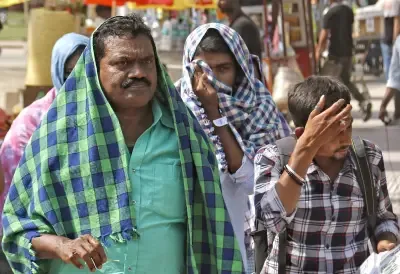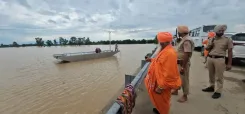Will the Bengal Government Compensate Rs 2 Lakh for Heatwave Deaths?

Synopsis
Key Takeaways
- Heatwave deaths now classified as natural disasters.
- Compensation of Rs 2 lakh for affected families.
- Post-mortem report required for financial assistance.
- 10% of SDRF budget can be allocated for compensation.
- 14 incidents recognized as natural disasters.
Kolkata, Sep 4 (NationPress) The government of West Bengal has officially categorized heatwave deaths as a natural disaster, which means that affected families will receive financial support of Rs 2 lakh.
This resolution was made during a recent gathering of the State Executive Committee, according to sources from the state secretariat on Thursday.
In recent years, numerous fatalities due to heatstroke have been recorded across the state, particularly in districts such as Purulia, Bankura, West Midnapore, Jhargram, West Burdwan, and Birbhum, which experience heatwaves during the summer months.
"Government officials have noticed these tragic incidents and initiated discussions on the matter," the sources reported. In August, the state Chief Secretary Manoj Pant convened a meeting where it was decided to extend financial assistance for deaths resulting from heatstroke due to heatwaves.
A formal notification regarding this assistance will be issued by the government shortly, as per the sources.
For families to receive the financial aid, a post-mortem report confirming death due to heatstroke will be required. The compensation will only be disbursed after verifying the cause of death.
A government official mentioned that by classifying heatwave deaths as natural disasters, the state can now utilize the State Disaster Response Fund (SDRF) to provide such compensation. Approximately 10 percent of the SDRF's annual budget can be allocated for compensating families affected by natural disasters, the official added.
It's noteworthy that the state government previously provided Rs 2 lakh in compensation for deaths caused by incidents such as lightning strikes, accidental fires, boat capsizing, falling trees, and house collapses.
Going forward, the state government has recognized 14 incidents—including heatwaves, river erosion, heavy rains, wild animal attacks, electrocution, forest fires, and deaths from venomous animal bites or attacks—as natural disasters.






